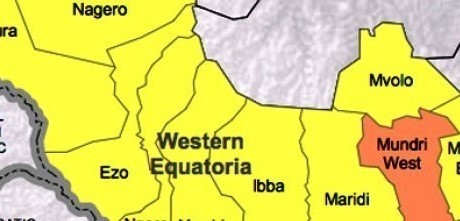A senior SPLA-IO commander in Western Equatoria State has announced his defection to President Salva Kiir’s side, becoming the second high-level defector this year in the state.
Gen. Barnaba Malish, the SPLA-IO Sector 6 deputy commander in Mundri, told Radio Tamazuj on Friday that he joined the South Sudan People’s Defense Forces (SSPDF) with 165 soldiers.
Malish cited lack of reforms and nepotism as reasons for his defection.
“I defected from the SPLA-IO under Dr. Riek [Machar] on September 6, 2020, to President Salva Kiir because our leader is not thinking of his people, but for himself and his family. That’s why we decided to defect from the party to join Kiir, and I have defected with 165 soldiers,” he said.
For his part, Costa Joseph, the SPLA-IO spokesperson in Western Equatoria State confirmed the defection, saying Malish’s defection would not affect SPLA-IO troops since all parties to the peace agreement will form one national army.
He urged the SPLA-IO soldiers in cantonment areas in the state to be patient and wait for their graduation.
“If you have an issue with the administration, you can just address it administratively without defecting and leaving the work. The soldiers in the cantonment sites in Mundri and Yambio should wait for their graduation. This is the time for peace and not politics because we are going to be one army,” said Costa.
He urged the president’s side not to allow soldiers defecting from other parties to join its army since a plan to form one army is underway.
Lul Ruai Koang, the spokesperson for the government military SSPDF, could not immediately be reached for comment.
In March, Gen. James Nando Mark, the SPLA-IO division commander in Western Equatoria, defected to President Kiir.
South Sudan’s parties to the revitalized peace agreement have yet to create a unified army, a key requirement of the peace agreement.
At least 83,000 unified forces are expected to form the national army.
The graduation of the unified forces has been delayed due to logistical and financial constraints. According to observers, the full implementation of the security arrangements is crucial to the peace process in South Sudan.




